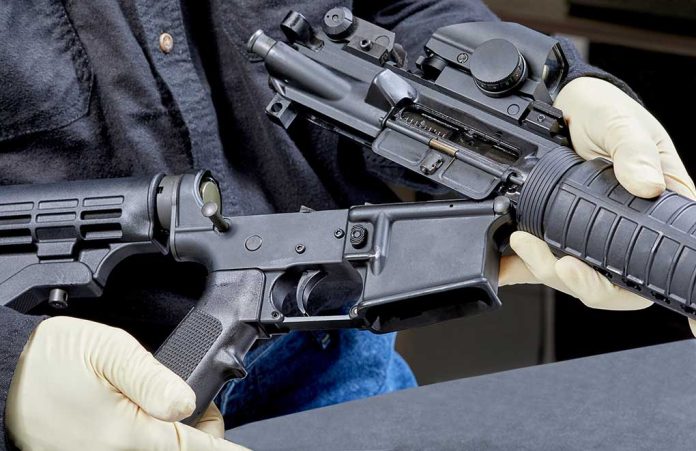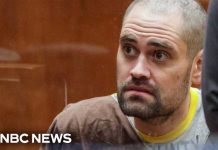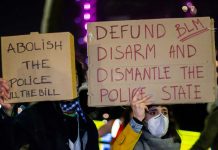
Colombian conservative presidential candidate Miguel Uribe Turbay fights for life after being shot twice in the head at rally, a brazen attack that U.S. Secretary of State Marco Rubio attributes directly to “violent leftist rhetoric” from Colombia’s government.
Key Takeaways
- Colombian presidential candidate Miguel Uribe Turbay was critically wounded after being shot once in the knee and twice in the head during a campaign speech in Bogotá.
- A 15-year-old suspect armed with a “9mm Glock-type firearm” was arrested shortly after the assassination attempt.
- U.S. Secretary of State Marco Rubio condemned the attack as “a direct threat to democracy” resulting from “violent leftist rhetoric coming from the highest levels of the Colombian government.”
- The attack has intensified political polarization in Colombia and raised fears of a return to the country’s dark history of political violence.
- Uribe Turbay, a 39-year-old conservative senator, has successfully undergone initial surgery but remains in intensive care fighting for his life.
Violent Attack Shocks Colombia
Conservative Colombian presidential candidate Miguel Uribe Turbay was shot multiple times while delivering a campaign speech in the Fontibón neighborhood of Bogotá on Saturday. The 39-year-old senator from the Centro Democrático party was hit once in the knee and twice in the head in what authorities are calling an assassination attempt. The shocking attack was captured on video and has sparked international condemnation as the first high-profile assault on a Colombian politician in decades, raising fears of a return to the country’s violent political past.
Immediately following the shooting, Uribe Turbay was airlifted to the Fundación Santa Fe clinic in critical condition. Colombian authorities quickly apprehended a 15-year-old suspect found with a “9mm Glock-type firearm” shortly after he fled the scene. The Colombian Ministry of Defense has offered a reward of nearly $750,000 for information related to the assassination attempt, underscoring the government’s official stance condemning the violence. President Gustavo Petro canceled a planned trip to France and ordered an investigation into the attack.
🇨🇴 SUSPECT ARRESTED AFTER COLOMBIAN CANDIDATE SHOT AT RALLY
A conservative senator running for president in Colombia just got shot in the head during a campaign event in a public park.
The shooter’s been caught, but police think more people might’ve helped.
Meanwhile, the… https://t.co/PIzF5Z41bJ pic.twitter.com/vcqG7pF7Zy
— Mario Nawfal (@MarioNawfal) June 8, 2025
Rubio Blames Leftist Rhetoric
U.S. Secretary of State Marco Rubio did not mince words in his assessment of the situation, directly linking the attack to what he described as dangerous rhetoric from Colombia’s leftist government. His strong condemnation points to growing concerns about political discourse in the region and raises questions about the responsibility of political leaders to moderate their language. The incident has immediately become a flashpoint in the already polarized Colombian political landscape, with opposition figures directing blame at President Petro’s administration.
“The United States condemns in the strongest possible terms the attempted assassination of Senator Miguel Uribe. This is a direct threat to democracy and the result of the violent leftist rhetoric coming from the highest levels of the Colombian government. Having seen firsthand Colombia’s progress over the past few decades to consolidate security and democracy, it can’t afford to go back to dark days of political violence. President Petro needs to dial back the inflammatory rhetoric and protect Colombian officials,” said Marco Rubio, U.S. Secretary of State.
This assessment from America’s top diplomat represents a significant diplomatic pressure on the Petro administration, which has faced criticism from conservative political figures for its perceived hostility toward political opponents. Rubio’s statement echoes concerns from within Colombia that heated political rhetoric might be contributing to a climate where violence is becoming more acceptable. The fact that a senior U.S. official has directly connected government rhetoric to political violence adds international weight to these domestic concerns.
A Family Legacy of Political Violence
The attack on Uribe Turbay carries a particularly tragic resonance given his family history. Though not related to former president Álvaro Uribe, the candidate is from a prominent political family with its own history of suffering from political violence. His grandfather was a former president, and his mother was murdered by Pablo Escobar’s Medellin cartel. This latest attack painfully recalls Colombia’s darkest periods, including the 1989 assassination of presidential candidate Luis Carlos Galán, and threatens the country’s hard-won political stability.
“At this moment, Miguel is fighting for his life. We ask God to guide the hands of the doctors treating him,” said Maria Claudia Tarazona, Uribe’s wife.
Uribe’s wife has reported that her husband “overcame the first surgical procedure” but remains in critical condition. The attack has prompted widespread demonstrations across Colombia, with supporters gathering to protest political violence and pray for the candidate’s recovery. Bogota Mayor Carlos Fernando Galan confirmed that Uribe Turbay “fought the first battle and fought it well,” though the senator’s condition remains precarious as he continues to receive intensive medical care.
Implications for Colombian Democracy
With the Colombian presidential election scheduled for May of next year, this attack represents a severe threat to the democratic process. Uribe Turbay, who announced his presidential run in October, is a right-wing senator and vocal critic of President Petro’s leftist administration. The attack has prompted calls from various political figures for increased protection for all presidential candidates, as the country confronts the possibility of returning to an era when political violence was commonplace.
“Evidently this [attack] shows an erosion of Colombia’s security and political climate in the short term,” said Sergio Guzmán, political analyst.
Security experts warn that this assassination attempt could indicate a dangerous shift in Colombia’s political environment. Elizabeth Dickinson, a senior analyst with the International Crisis Group, suggested that whoever ordered the attack “very clearly had the intention of throwing gas onto a fire, trying to be incendiary in an electoral context that is already deeply polarized.” The shooting has already intensified tensions between Colombia’s political factions and raised serious concerns about the safety of the democratic process in a country that has worked for decades to overcome its violent past.









